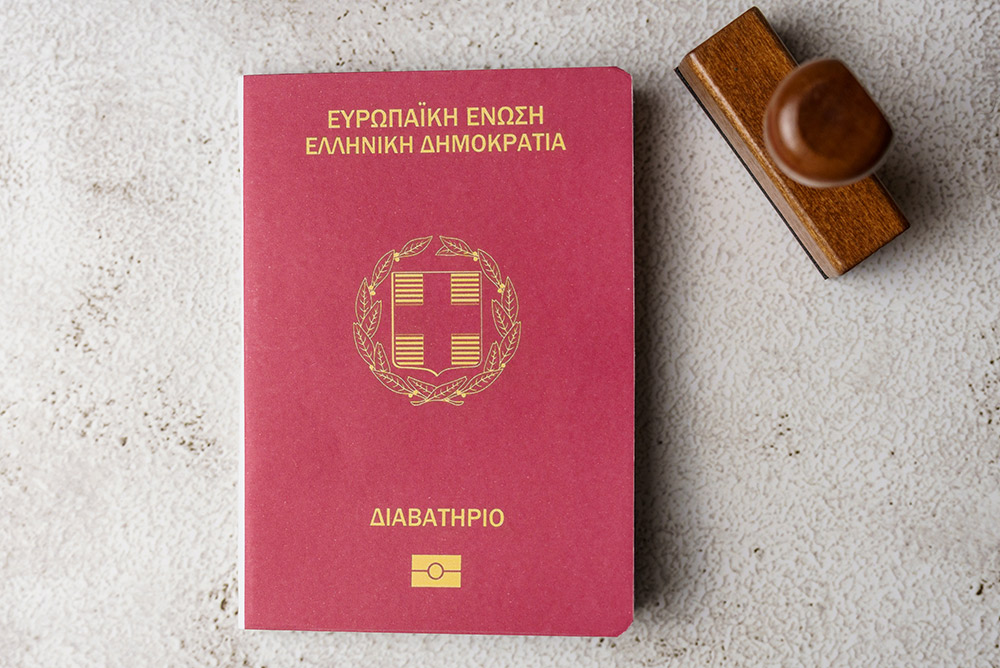Naturalization is an important part of the national and social life of every country. In Greece, naturalization has historical significance and has played an important role in the country’s development. The process of naturalization is described in the Greek Citizenship Code, as amended by Law 4735/2020, Law 4873/2021, Law 4915 /2022 and the latest Circular of the Ministry of the Interior regarding the naturalization of third country foreigners (no. 715/18.10.2021).
More generally, Allogeneic foreigners, i.e. citizens of the European Union, citizens of Third Countries and Stateless persons who do not have Greek origin and reside legally and permanently in the country can acquire Greek Citizenship through the process of naturalization. However, each category is subject to different conditions.
When it comes to the naturalization of foreign nationals originating from a country outside the European Union, the procedure could be divided into four (4) sections, with the last one being the acquisition of Greek citizenship and the receipt of the Greek identity card from the relevant Police Department. Below can be found some key – information for the concerned applicants:
1. Naturalization Exams (Certificate of Competence for Naturalization / “P.E.G.P.”)
Based on L. 4735/2020, a new procedure for the naturalization of third country citizens was established, which demands their participation in the examinations for the Certificate of Competence for Naturalization (also known as “P.E.G.P.” in Greek). Thus, in order to ascertain that the essential conditions for the integration of the persons concerned into Greek society are fulfilled and to obtain the above-mentioned Certificate, one must pass an examination:
- in Greek language (at a level equivalent to B1) in the understanding and production of oral and written language,
- regarding the certification knowledge in the subject areas of Geography, History, Culture and Political Institutions of Greece.
The examinations for the Certificate of Competence for Naturalization are one of the key points, to which every interested party should draw their attention, as it replaces the oral interview procedure that was in force until 31.03.2021. Specifically, in May and November of each year, i.e. twice (2) a year, the naturalization examinations take place, with those interested being able to apply to participate in any examination period suits them best. The pass mark for the exam is set to 70% of the total number of answers.
In view of the above, it is necessary to distinguish between: i) those who have already applied for naturalization under the previous regime, i.e. up to 31.03.2021 and ii) those who wish to apply for naturalization for the first time. The former, if they have not already been subjected to an interview before the Naturalization Commission, must take an exam and obtain the P.E.G.P. , while the latter cannot apply for naturalization unless they firstly pass the naturalization exams.
2. Application for Naturalization
After successfully passing the naturalization exams and obtaining the Certificate of Competence for Naturalization, the application for naturalization is submitted to the Citizenship Service of the Ministry of Interior of the place of residence of the person concerned, accompanied by the required documentation. The processing time of the naturalization application can reach up to twelve (12) months, while the administrative fees for the submission of the application amount to €550 and to €200 in case of re-submission. Finally, it is worth noting that the possibility of electronic submission will soon be available.
3. Processing of the case file
The competent Directorate of Citizenship protocols the application in order to initiate the procedure for checking the completeness of the supporting documents. The case file of the person concerned is charged to the competent employee in order of priority determined by the date of submission of the application in conjunction with the date of the acquisition of the P.E.G.P. The said employee then checks the formal and substantive requirements, and the procedure can be briefly described as follows:
- Background Check: The Greek authorities will conduct a thorough background check to verify the applicant’s criminal record and character.
- Interview: In some cases, applicants may be called for an interview to assess their integration into Greek society and their commitment to Greek values and culture.
In view of the above and due to the amendments of the Law, it is worth stating that a foreigner wishing to become a Greek citizen by naturalization must have resided legally in Greece for seven (7) consecutive years before submitting the application for naturalization*. Exceptions to the seven (7) year continuous residence requirement prior to submitting a Naturalization application apply to:
- Individuals who are married to Greek citizens and those who have parental care of a child with Greek citizenship, for whom three years of permanent and legal residence in Greece is required.
- European citizens, for whom again three years of permanent and legal residence in Greece is required.
- Recognized refugees or recognized refugees with subsidiary protection, for whom a three-year permanent and legal residence in Greece is also required.
In addition, the new regulations abolish the oral interview by the tripartite committees regarding the assessment of the applicants’ economic and social integration in the country. From now on, their integration is proven through the documents they submit, while as mentioned above, an oral interview is conducted only in case of doubts as to whether they are economically and socially integrated. In this case, the employee in charge of the case file, based on all the data and supporting documents included in the file, makes a reasoned recommendation for the acceptance or rejection of the naturalization application and then forwards the draft decision (regarding the acceptance or rejection of the naturalization application) to the Head of the Regional Directorate of Citizenship for his/her signature.
*This requirement does not concern those who have been born in Greece and live in the country ever since.
4. Acquisition of Greek citizenship
Following the previous stages, naturalization is finally carried out by a decision of the competent body of the Ministry of the Interior, published in the Government Gazette. Greek citizenship is acquired upon the foreigner’s swearing in, while the naturalization decision is revoked if the oath is not taken within the one-year period after the person concerned is called to swear in. Finally, an order is given to the relevant Department so that the concerned person is registered properly in the Municipal Register of the Municipality of his/her permanent residence (until 31.12.2022 for men, an order for them to be registered in the Male Registers/”Mitroa Arrenon” was given at the same time). At this point, the concerned person can now receive his/her Greek identity card from the relevant Police Station.
All in all, citizenship by naturalization in Greece provides a gateway to a vibrant Mediterranean country with a rich cultural heritage. While the process may require time and effort, the benefits of Greek citizenship are worth it. By meeting the eligibility criteria, gathering the necessary documentation, and navigating the application process diligently, foreign residents can embark on a journey to become Greek citizens, embracing the rights and responsibilities that come with their new status.
After making the payment (at this stage an advance payment of 30% of the total fee is paid), we will contact you to send the required supporting documents, so that the process can proceed. If you are not sure that you have the necessary conditions, before proceeding with the payment contact our office either by phone (2313 079293) or by email (info@siopi–law.gr).




